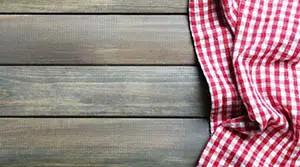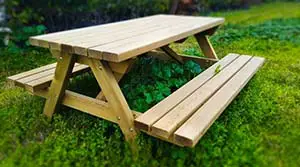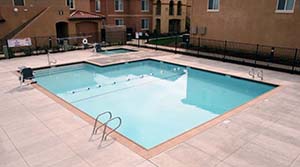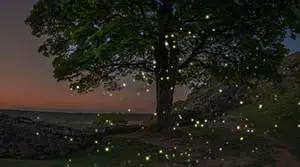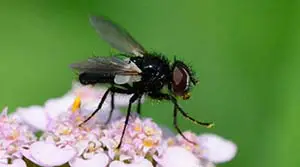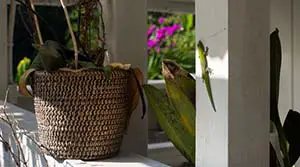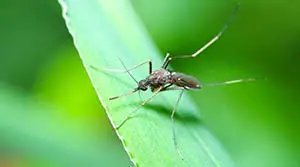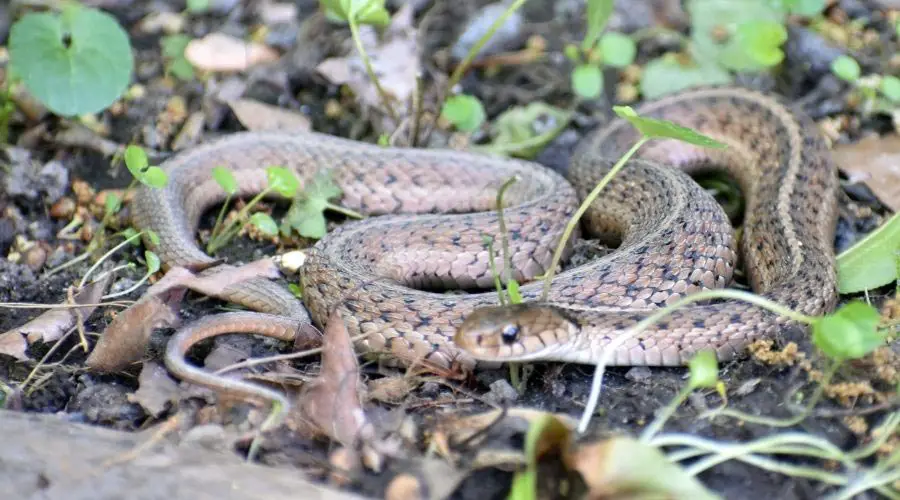
What was your immediate reaction when you first had an encounter with a snake on your private property? For most people, there are two reactions; freeze or flight.
Snakes don’t exactly have the best PR. So, to minimize encounters in your home, you have to safeguard your yard against snakes.
The best way to keep snakes off your yard is limiting their food sources, removing any habitats where they might thrive, and keeping your yard free of anything that invites them.
We’ll explore myths about snake repellents and help you find out what works against snakes.
How Do You Keep Snakes Away From Your Yard?
Most snakes slither into yards to either look for shelter or food. Eliminating these two essential things will reduce any encounters with snakes. Also, you need to consider the kind of snakes you’re deterring from entering your home.
Not all snakes are venomous or poisonous. Some snakes help cull rodents from your home as they feed on rodents, insects, and slugs.
Under different circumstances, these rodents might be in your home, ruining plants, wiring, or creating hidden homes in small spaces. However, we understand you might not want to get all buddy-buddy with snakes.
Take these steps as safe ways to keep snakes out of your yard.
Landscape your yard
Landscaping your yard is a whole project whose result should be making your yard neater and less inviting to snakes.
- First, cut all the tall grass around the yard. Tall grass is an excellent hideout for snakes. Get your lawnmower out and cut the grass down to the neatest level. Most snakes don’t move around during the day due to the sun. Therefore, having short grass exposes them to human eyes and the sun.
- Next, clear out any large rocks with spaces underneath. Huge rocks with spaces provide shade and a cooling spot for small snakes. You also need to clear out any debris that would otherwise hide both rodents and snakes.
- Install flat stones that don’t leave any space in the ground.
- Seal up any holes where snakes could hide. Holes are a great hiding spot for snakes. They might find holes in corners, especially near fences or if you have raised structures. Holes provide shade and egg-laying spots for snakes.
- Ensure your yard is not saturated with moisture. Snakes are not attracted to moisture in the soil. However, excessive moisture is a calling card for snake’s favorite nom noms – rodents, frogs, insects. Keep your yard well drained at all times.
While you’re at it, limit your mulch usage. Mulch limits weeds in your yard and provides the perfect grounds for snakes.
Vast patches of mulch become warm underneath. When it cools down, they make the ideal moist environment for snakes and other insects.
Therefore, limit your mulch to only as much as you need to keep weed growth at a minimum. (Hint: Keep the mulch below six inches)
What Mulch Do Snakes Hate?
Plant-based mulch provides a friendly habitat for rodents, insects, and some amphibians. Unfortunately, snakes follow the food. Still, mulch is essential for your garden plants.
Substitute your organic mulch with crushed rock mulch. Crushed rock mulch is commercially more viable for your pockets. Also, snakes hate ground rock mulch. It has sharp edges that will most likely hurt the soft underbelly.
Crushed mulch is excellent for areas that don’t need constant mowing.
Does Gravel Keep Snakes Away?
In a bid to tidy up your yard work, replace the large rock with gravel. Gravel will not keep snakes away. Still, It will provide a less suitable environment for snakes to hide. It also exposes rodents.
Fine gravel is easy to manage when you want to even out the ground. It’s great to use as a border, where snakes typically hide.
1. Fence Your Yard
Now that you’ve managed to rid your yard of any spots that might hide snakes, it’s time to cut the problems at the root. Your fence is a weak point of entry for snakes. If you have a low fence, snakes can climb it.
Install a fence that prevents entry right from the ground. Most walls have a ½ inch space. While the half-inch spacing might keep off more enormous snakes, smaller snake species can still slither their way through. Therefore, insist on ¼ inch fencing.
Additionally, your fence needs to start a few feet into the ground. That way, snakes cant slide their way into the yard from underneath.
Include a slight curve at the top of the fence. When snakes slide up the wall, they’re going to have a difficult time making it past the turn.
Your fence should incline right from the bottom. A 30-degree angle slanting outward away from your home makes it harder for snakes to slither up.
You can install the fence if you’re handy at that sort of thing. Otherwise, get a professional service to install the barricade for you.
2. Rearrange Your Firewood Storage
Piled-up firewood provides a nice cozy hiding spot for snakes. They can find shade, shelter, and maybe catch a meal from under your pile of firewood.
Lay some flat 2 x 4s where you store your firewood. Arrange your firewood such that there are minimal crevices left between the firewood.
Also, ensure the firewood stack is not near your house. Once snakes make a home under the firewood stack, there are more chances they’ll enter your home.
3. Get a Pest Controller
Snakes are afraid of you as much as you are of them. Nine times out of ten, if they’re attempting to come to your yard, it’s in search of food. Get a pest controller that removes any rodents, amphibians, and lizards from your yard.
Pest control can be anything from emptying your trash, managing your compost, and keeping your pet’s food indoors. If you have to leave pet food outside, make sure it’s in the pet’s housing.
4. Remove the Birdhouses Around the Yard
Birdhouses are bad for your yard in snake-infested areas. One, birds are messy feeders. They’ll eat and spill seed to the ground. The grain attracts small rodents, making it a good spot for snakes to look for food.
Also, snakes are great climbers. Birdhouses make great hiding spots for snakes. The last thing you want to do is meet a snake atop a birdhouse.
If you want to keep the birdhouse as a yard ornament, install a decoy bird that looks like a snake predator.
5. Install Decoy Predator Birds
Speaking of birds, snakes have incredible situational awareness. They know how to identify predators in any surrounding. If you’re going to retain the birdhouses, don’t keep food in them. Instead, mount decoy predator birds.
Snakes will likely notice the predator birds and stay out. Here’s a list of some of the birds you can use.
- Hawks
- Owls
- Falcons
- Eagles
- Kookaburras
These are wild birds that belong in a group called Ophiophagus birds. By extension, supplement the decoy birds by having live birds in your yard.
You can attract predatory birds to your yard by placing perch poles around your home. However, be cautious. Predator birds might make away with chicks if you have farm birds.
6. Rear Domesticated Snake-Eating Birds
Technically, you won’t prevent snakes from entering your yard if you keep snake-eating birds. However, you will be getting rid of snakes that slither into the yard. Domestic birds are not afraid to fight a snake or eat one if they encounter one.
And since you are more likely to have snakes in a rural setting than an urban one, farm birds are much more appropriate as a snake deterrent.
Chicken, ducks, geese, and turkey can co-exist in the same place. Guinea fowl usually form a circle and peck snakes, then make a snack out of them. They can be some anti-snake force that keeps your yard snake-free.
Farm birds are not a long-term solution to solve your snake problem. Snakes can retaliate and hurt your birds.
7. Restrain Access Everywhere There’s a Possible Breach Point
Drains and vents are vulnerable points of entry and hiding points for snakes. While there’s an added benefit of covering these spaces for drainage purposes, it’s also safe to ensure you protect them to keep out rodents and snakes.
The solution is as simple as galvanized screening. You can cut a section of the ¼-inch mesh and cover the gutters, drains, and vents.
You’ll find this helpful hack if you have neighbors whose houses are unguarded against snakes. Amp up your yard protection if your neighbor has trees. Some snakes are exceptionally skilled climbers.
8. Seal Any Entry Points On Your Doors & Windows
Even with all the measures you put in place to keep your yard snake-free, you might get unlucky. A snake might slither into your compound. It’ll be worse if it gets to your house. The key is to prevent the snake from getting into your home.
The answer? Weatherstripping.
Weatherstripping is sealing doors and windows to ensure you’re getting minimal wind drafts in the house. Install weatherstrips in the door jamb.
Weatherstripping can be a DIY project, or you can call a home service to do it for you. Still, it will limit any chances of snakes getting inside your house and finding a hiding spot.
9. Use Vibrations to Lure Snakes From Their Hiding Spots
If you suspect you have a snake intruder in your yard, draw them out. One of the best ways to draw out snakes is using a high-vibration lawnmower. The vibrations scare the snakes. They’ll want to escape to some other more restful place.
If you find some snakes in your yard, here are some things you shouldn’t do.
Don’t Attack the Snakes
Snakes try to hide from human confrontation actively. And unless you live in an area rife with venomous snakes, most species mean no harm.
If you see a snake, move out of its path, and it will slither away from you. You can attempt to capture it until you call a wildlife authority or a snake removal service.
Don’t Use Ceramic Eggs
Some people use ceramic eggs, mostly in chicken coops. Snakes swallow the ceramic eggs, which block their digestive tracts. Over time, the snakes can’t defecate the eggs.
It’s a slow death for them. If you must use ceramic eggs to trap snakes, use eggs they can’t swallow. These eggs might even help your egg-laying chicken to lay eggs.
Don’t Use Snake Traps
Snake traps usually hurt snakes. Sometimes they hurt snakes so bad the snakes end up with infections that kill them. It’s a cruel step to take.
Don’t Kill the Snakes
Please don’t kill the snake. Your first instinct may be grabbing a shovel and whacking the snake on the head. However, you expose yourself to danger if the snake feels threatened and attacks you.
Also, killing snakes upsets the natural food order of the area. You’d be shocked at how vital snakes are at ensuring a controlled rodent, slug, snail, and insect population.
Additionally, you might find yourself on the wrong side of the law for unlawfully killing a non-venomous snake. Some states have snakes protection laws. You’ll need to have a permit before you can hunt or kill one.
Do Snake Repellents Work?
Snake repellents are a controversial topic. Many commercial companies claim snake repellents work. They base this claim on the fact that most commercial repellents contain naphthalene or sulfur. Naphthalene is the active ingredient in mothballs, also said to keep away snakes.
Snakes have a well-developed smell system. Still, they taste — or test — more accurately with their tongue. So far, there is no conclusive study that suggests snake repellents work.
The court is still out on different products. You’ll find reviews of people who swear by certain snake repellents and others that confirm the ineffectiveness of these deterrents.
If I were you, I’d be careful with stuff like mothballs, especially if I had pets. Mothballs harm dogs, cats, and kids. Be cautious about what you scatter in your yard.
What Smell Do Snakes Hate?
1. Clove & Cinnamon Oil
Clove and cinnamon oil carry potent scents. Experiments using brown tree snakes as the test species found that clove oil and cinnamon oil irritated snakes.
You can make a load of these oils and spray them in areas familiar with snakes, such as under sheds, shed corners, and bushes.
However, the efficiency of oils is not as impressive. One, they might be pricey. Also, you would need to reapply a couple of times a month to keep the odor strong.
Still, it’s a natural snake deterrent that works.
2. Garlic & Onion
Garlic and onion belong in the same group, alliums. Garlic releases allicin, a strong scent. Snakes don’t like that smell, and they will keep away from the garlic. On the other hand, onions release sulfonic acid, the stuff that makes you tear up.
However, garlic and onion are short-term solutions to deter snakes from your property, like essential oils that prevent snakes.
It would be wasteful to lay perfect onions and garlic trails to keep away snakes. How about just making a sauce instead as a personal reward for all that yard work you just did?
3. Ammonia
Take this method with a pinch of salt. Not because it doesn’t work. Instead, it might work too well and is harmful to snakes.
Ammonia is a harsh smell. Snakes can’t stand it. However, it hurts snakes that are only trying to look for food and a place to cool down.
You can use it if you live in areas where snakes are a huge problem, such as desert areas or marshy lands.
Conclusion
Sudden encounters with snakes are scary. The best way to minimize your encounters with snakes is to keep them off your property. Keep your property neat, and you might not see snakes in your yard.
Keep your area’s snake removal company on speed dial. Call them when a couple of those slithering snakes sneak into your yard.
Sources


